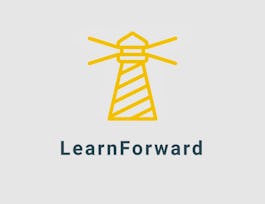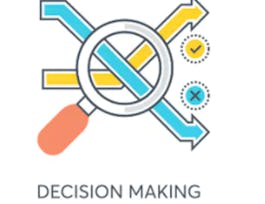Course 4 presents an overview of cognitive capacities and limitations. You will distinguish between different types of attention, compare and contrast different types of memory, identify the most common strategies and heuristics humans use for decision making and problem solving.



Human Cognitive Capacities & Limitations
This course is part of Human Factors & Usability Engineering: Designing for Humans Specialization

Instructor: Robert Gray
Sponsored by Syrian Youth Assembly
Recommended experience
What you'll learn
Learn to distinguish between types of attention & memory, and identify strategies and heuristics used for decision making & problem solving.
Details to know

Add to your LinkedIn profile
4 assignments
See how employees at top companies are mastering in-demand skills

Build your subject-matter expertise
- Learn new concepts from industry experts
- Gain a foundational understanding of a subject or tool
- Develop job-relevant skills with hands-on projects
- Earn a shareable career certificate


Earn a career certificate
Add this credential to your LinkedIn profile, resume, or CV
Share it on social media and in your performance review

There are 5 modules in this course
Building upon the knowledge gained from Course 3, we now delve into the cognitive aspects of human factors in Course 4: Cognitive Capacities & Limitations. Throughout this course, we will explore different types of attention, memory, decision-making strategies, and problem-solving techniques. By understanding the limitations in attentional capacity and decision-making strategies, we can gain insights into how they contribute to human error. This knowledge will empower us to design systems and interfaces that accommodate these cognitive limitations and optimize human performance.
What's included
1 video1 reading
In this module, we will discuss the field of motor control, exploring how we control our movements and the various constraints that shape our actions. Through this module, we will uncover the characteristics of movement solutions and gain insights into the intricate processes involved in motor control.
What's included
3 videos3 readings1 assignment1 discussion prompt
In this module, we shift our focus to human memory and attention. Understanding how our memory works and how we allocate our attention is crucial for designing effective interfaces and optimizing human performance. We explore the concept of attention, the different types of attention, and their role in information processing. We also delve into the complexities of human memory, including its various stages, encoding processes, and factors that influence memory retrieval. Lastly, we examine the traditional model of skill acquisition, shedding light on how individuals acquire and refine their skills over time.
What's included
4 videos5 readings1 assignment1 discussion prompt
In Module 3, we explore the cognitive processes and factors that influence our decision-making abilities. From understanding how decisions are made to exploring the role of heuristics and biases, this module provides valuable insights into the human mind and its approach to problem-solving. Additionally, we discussed the concept of creativity and how it contributes to innovative problem-solving techniques.
What's included
3 videos5 readings1 assignment1 discussion prompt
In this module, we will discuss motor learning and skill acquisition. By the end of this module, you will have a comprehensive understanding of the traditional and ecological approaches to skill acquisition and the research findings that contribute to our knowledge of motor learning and skill development.
What's included
2 videos8 readings1 assignment
Instructor

Offered by
Why people choose Coursera for their career




Recommended if you're interested in Physical Science and Engineering

Coursera Project Network

Deep Teaching Solutions

Fundação Instituto de Administração

Johns Hopkins University

Open new doors with Coursera Plus
Unlimited access to 10,000+ world-class courses, hands-on projects, and job-ready certificate programs - all included in your subscription
Advance your career with an online degree
Earn a degree from world-class universities - 100% online
Join over 3,400 global companies that choose Coursera for Business
Upskill your employees to excel in the digital economy


